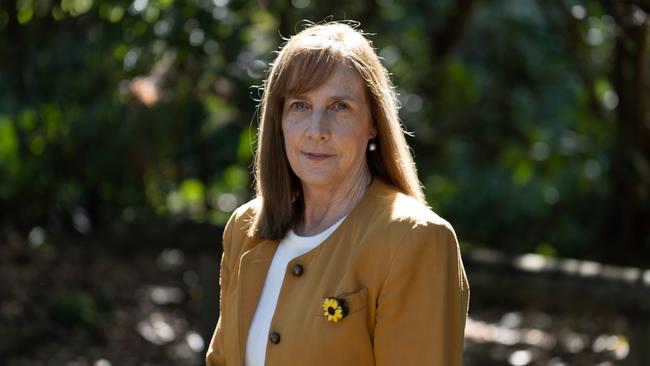
In school buildings around the state, with teachers and counsellors watching on, Vanessa Fowler does her best to tell groups of teens about the sister she lost to domestic violence.
She tells them about the trial where Gerard Baden-Clay painted his intelligent and talented wife as a nervous wreck who could barely drive or dress herself, who surely (he falsely claimed) took her own life.
She tells them how it was only then they discovered the full picture of how he’d treated her, about the allowance he’d restricted her to, the baby monitors he’d used to listen in on her conversations and the ways he’d isolated her from friends and family.
And she tells them that this is coercive control and how it will soon be illegal to act this way – to monitor and restrict someone’s money, to tell them how to live and who to speak to.
“You get some scoffs from certain … boys’ groups,” Fowler says.
“When you are talking to grade 11s and 12s, you get the scoffs and giggles from some portions of the audience but there’s also that realisation from many of the students – not just females – that now I can put a name to what I’m seeing. And knowing that it’s going to be criminalised next year is certainly startling for most of them.”
On July 1, it became illegal in NSW to use abusive behaviours towards a current or former intimate partner with the intent to coerce or control them.
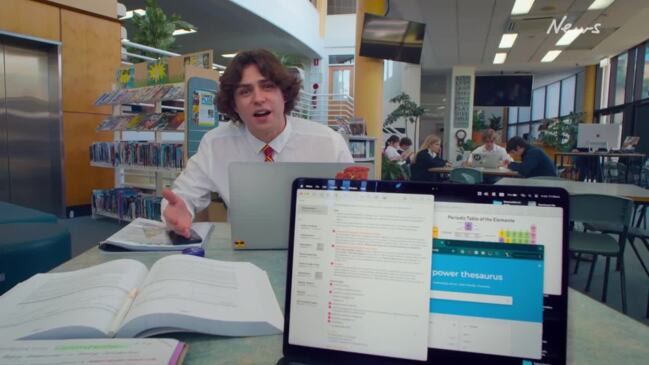
The laws target repeated patterns of abuse – physical or not – where the aim is to hurt, scare, intimidate, threaten or control someone.
Next year, Queenslanders are expected to be subject to similar laws.
Organisations like the Allison Baden-Clay Foundation are immensely important in helping educate – particularly the next generation – about what that means and what a healthy relationship looks like.
This month, the Toxic Love Signs campaign was launched at the annual Strive To Be Kind lunch – a testament to a decade of work by Fowler, also the co-chair of the Queensland government’s Domestic and Family Violence Prevention Council – educating the public about an incredibly complex issue.
The new campaign focuses on technology-based abuse and highlights behaviours like changing passwords to someone’s accounts without their consent, restricting access to devices, forcing someone to hand over their login details, claiming tracking software is for the other person’s safety and threatening to post images on social media.
The foundation, which is not government funded, has been responsible for creating and distributing more than 50,000 “power and control” wheels that detail what an unhealthy relationship looks like.
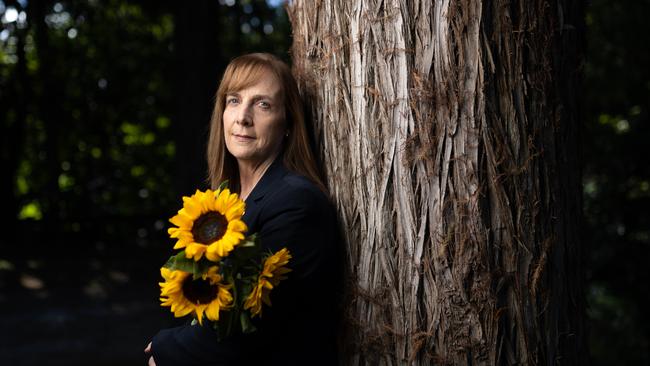
Part of Fowler’s discussion with school groups centres around the risks of breaking the law by sexting and having nude images of their teen peers on their phones.
“You see some of them pick up their phones and start deleting them,” she says.
“It’s incredible that the young people of today just have no idea of the abuse that they are perpetrating when they do those kinds of things because they think it’s just so innocent, it’s just a joke, it’s harmless, it’s not hurting anybody.
“From my point of view, it’s certainly really valuable work that needs to be done.
“Speaking to year 11s and 12s, in some respects, is far too late.
“We need to be talking to kids in upper primary and we need to be talking to those students in the middle school age group. That’s where we are going to see that generational change because by the time we get to grade 11 and 12, their perception of how to have a relationship is skewed by what they have seen online, what they have seen on YouTube and TikTok and Instagram and with influencers, with people like Andrew Tate who shares his views on how to treat women.”
The foundation will also launch a series of new video clips depicting technology-based abuse, emotional abuse and isolation aimed at school students.
The videos include a boyfriend who asks his girlfriend to show him the messages her friends send her. He tries to distance her from them, by telling her they’re not good friends.
“I love you, just you and me OK, you don’t need anyone else,’’ he tells her.
Another video features a boyfriend who asks his girlfriend to send him a nude image.
He texts her multiple times, pleading for the pic.
“You’d do it if you loved me x,’ is the final text he sends her.
Past clips show a teen girl being harassed by a barrage of text messages from her boyfriend demanding to know where she is and who she is with.
“We talked about this, I just wanted to go slow,” the girl tells her pushy boyfriend in one. The sullen teen boy responds: “God Sarah, we are literally dating! Jess and Alex have hardly been together and have already done more than we have.”
This, the foundation wants teens to know, is toxic behaviour and should be called out.
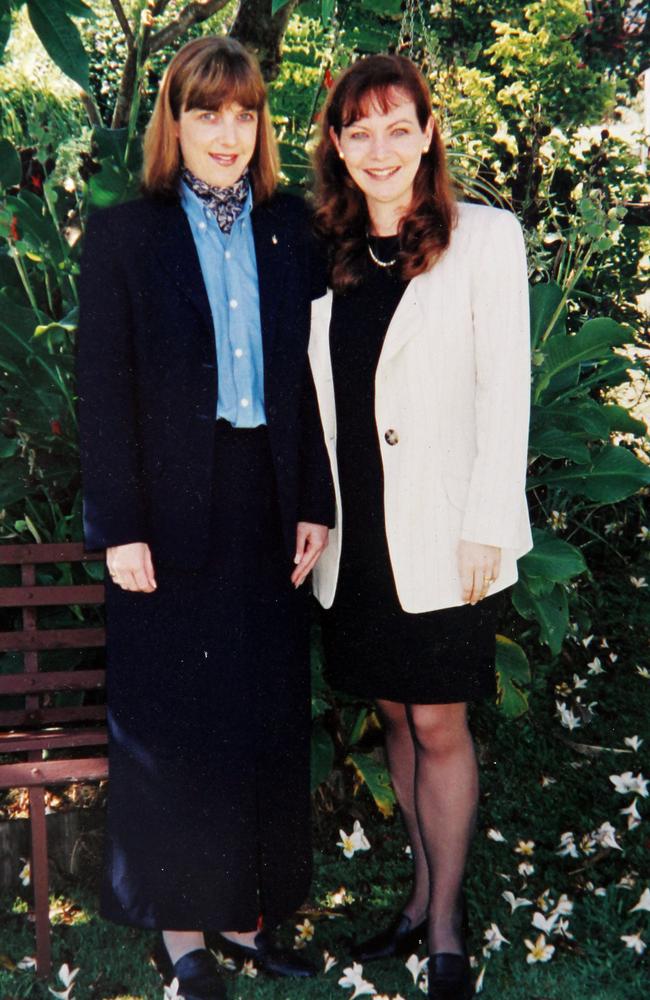
When Fowler talks about her sister’s murder to students, there is little recognition of the case that once resonated so strongly with Queenslanders that people queued for hours to watch the trial and marched in the streets when Gerard Baden-Clay’s conviction was downgraded to manslaughter. After an appeal the original murder conviction was restored.
But in 2012, when Allison was murdered, and in 2014 when the case went to court, the concept of coercive control was unknown and there was little recognition that the mother-of-three was a victim of domestic violence.
“Telling Allison’s story (to students) – they were so young (at the time),” Fowler says. “They vaguely remember.’’
At 7am on April 20, 2012, Gerard Baden-Clay called police to report his 43-year-old wife missing. He told them she’d gone for a walk and hadn’t come back. When officers arrived at the family home in Brookfield, in Brisbane’s west, Baden-Clay answered the door with deep fingernail scratches carved down his cheek.
The real estate business owner and local chamber of commerce president lived in a raised weatherboard house on the main street with his wife and their three daughters. In reality though, it was Allison who was the high achiever. A talented ballerina who spoke five languages, she had worked her way to global head of human resources at Flight Centre. She lived for her family, for her daughters, and worked hard to keep her troubled marriage together.
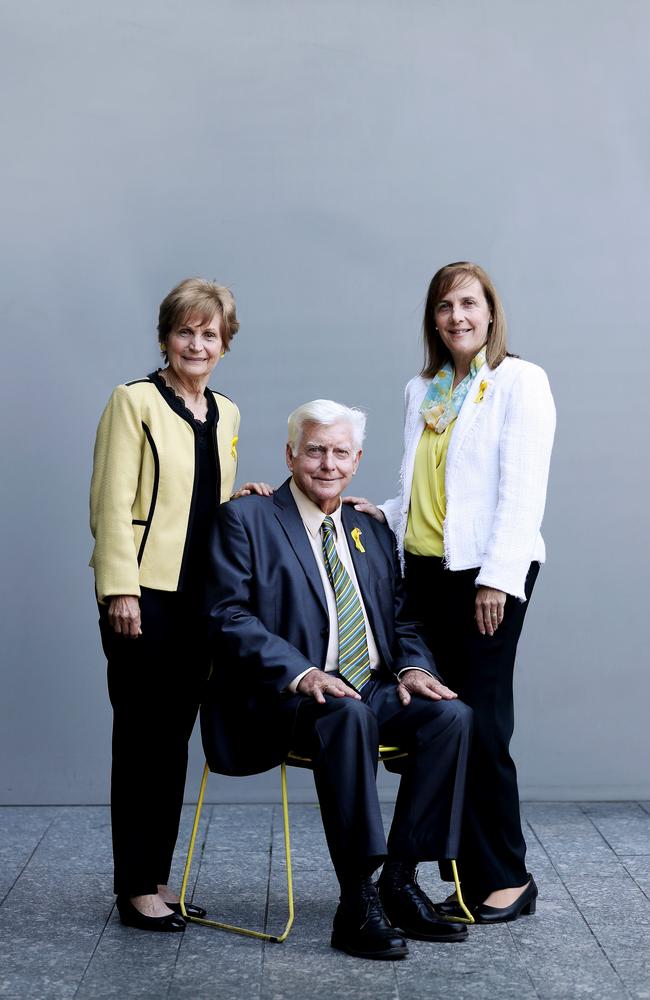
Gerard Baden-Clay, who had engaged in multiple affairs and had even posted a profile on an adult matchmaker site, was drowning in debt and lies.
He was a man who liked to be in charge of his family. He believed in discipline and control.
Allison was given an allowance. She was belittled and embarrassed by her husband.
Her “gratitude journal” – uncovered by police and presented at trial – was a sad insight into what her husband had done to erode her confidence.
She’d been isolated from her family and friends. Baby monitors had been placed throughout the house to spy on her. The home phone had been disconnected and family members’ numbers erased from her mobile.

Hundreds of thousands of words have been written about Allison the victim. But Fowler is turning that around. Her sister is her inspiration, her drive, and the reason why school students across the state are learning what they should accept and what they should call out.
“I certainly think she would be proud that we have created a positive legacy in her name,” Fowler says.
“We did that for her three girls and, obviously, the broader community. As an educator, it was important for me to take the information I acquired from the trial and use that, through the foundation, to ensure other families don’t go through the challenges we have been through.”
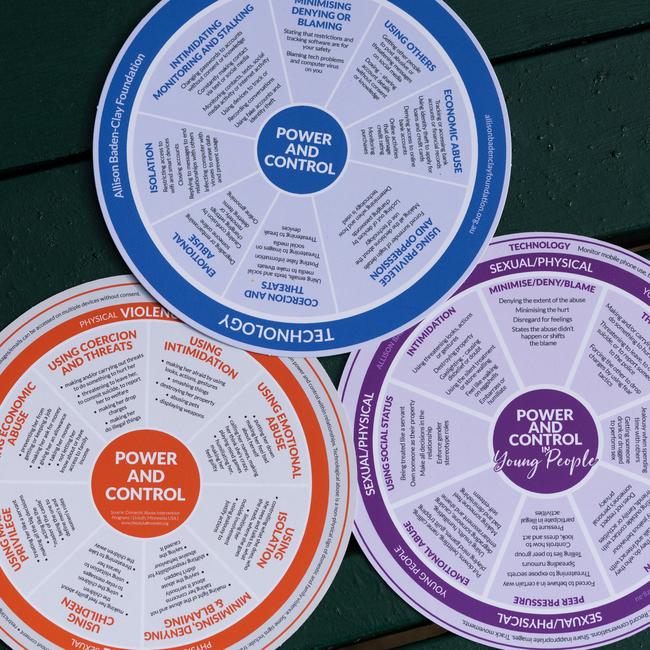
TOXIC USE OF TECHNOLOGY
■ Emotional abuse: Degrading or embarrassing someone online.
■ Isolation: Replying to messages to end relationships with others.
■ Coercion and threats: Using emails, texts and social media to make threats.
■ Intimidating, monitoring and stalking: Monitoring contacts, texts, social media activity or internet activity.
■ Minimising, denying or blaming: Stating that restrictions and tracking software are for your safety.
■ Using others: Getting other people to post abusive or threatening messages on social media.
■ Economic abuse: Tracking or accessing bank accounts or financial records.
■ Using privilege and oppression: Forced surrender of login details.

Add your comment to this story
To join the conversation, please log in. Don't have an account? Register
Join the conversation, you are commenting as Logout
‘Crying for three years’: Inside story behind Alexa Leary’s world record performance
Three years ago Alexa Leary’s family were told she would never walk again. Now she’s on top of the world after one of the great comebacks in human history. See the story and videos behind her world record breaking performances.
Young Supercars champion says cancer fight drives him forward
On the eve of Bathurst 1000, supercars driver Thomas Randle says he was “very fortunate” to beat testicular cancer. Now his mission is to keep moving forward while also giving back.